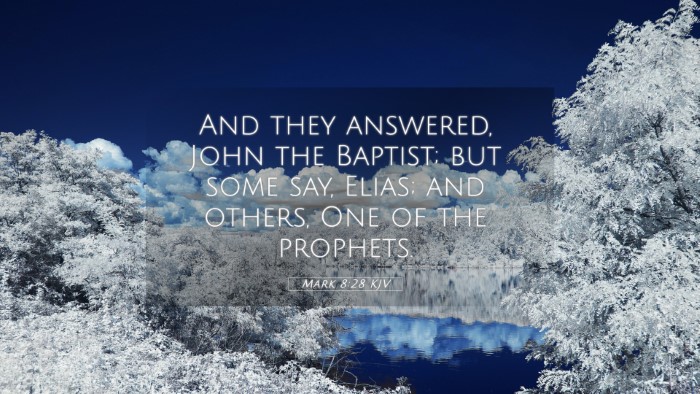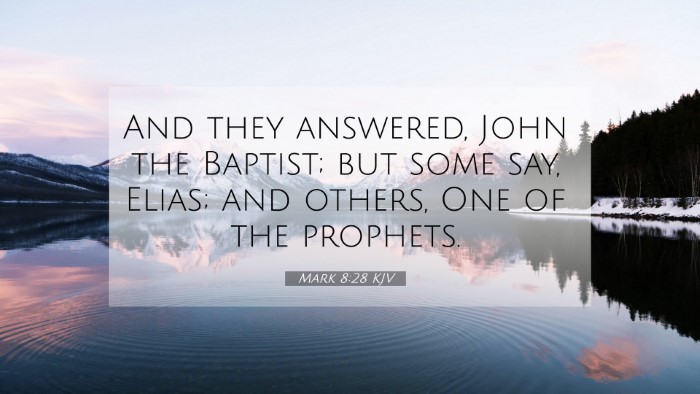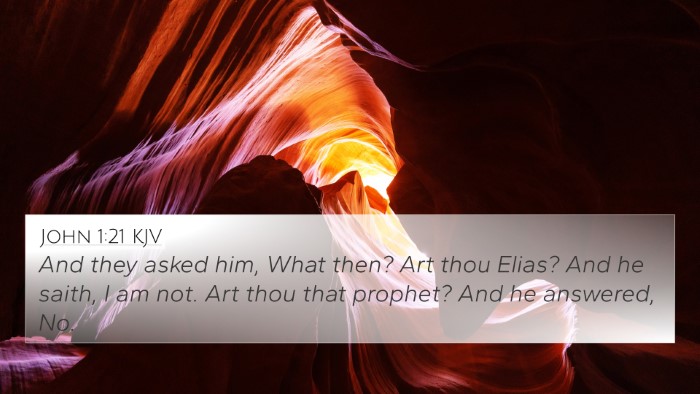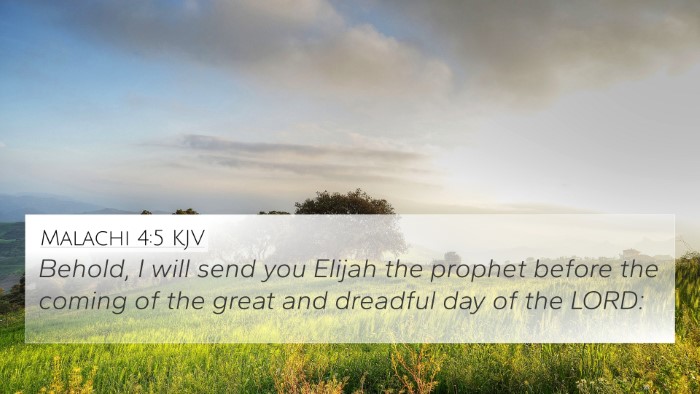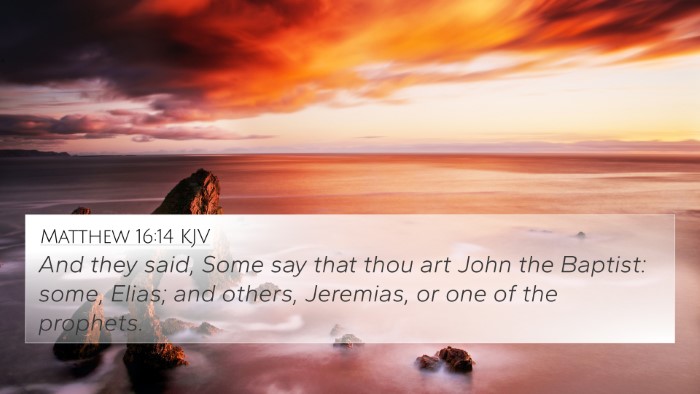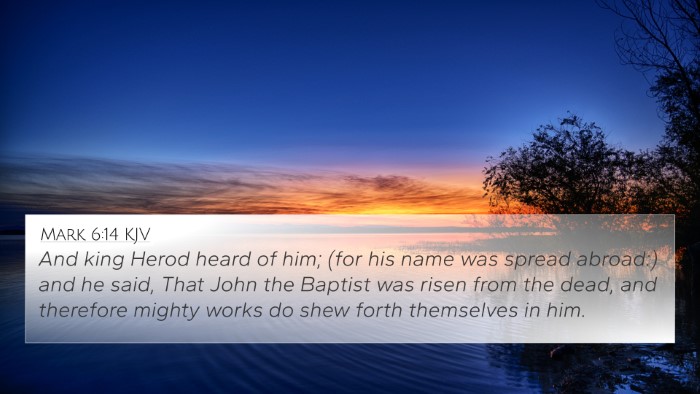Understanding Mark 8:28: A Comprehensive Analysis
Mark 8:28 is a verse deeply embedded in the narrative of Jesus' ministry, where He asks His disciples about the beliefs of the people concerning His identity. This verse reads, "And they answered, John the Baptist; but some say, Elias; and others, One of the prophets." Through this inquiry, Jesus seeks to assess the public perception of who He is.
Interpretation and Context
The context of Mark 8:28 is vital for understanding its significance. Jesus, having performed miracles and taught extensively, now confronts His disciples with a question that reveals both the general public's confusion and the need for personal recognition of His identity.
Insights from Public Domain Commentaries
-
Matthew Henry: Henry notes that this inquiry about Jesus' identity serves to demonstrate the various opinions held by the people of that time. The answers given—ranging from John the Baptist to Elijah—illustrate both a reverence for prophetic ministry and a misunderstanding of Jesus' true nature.
-
Albert Barnes: Barnes emphasizes that this response shows the limited understanding of Christ among the masses. The people thought of Him as a great prophet rather than recognizing His divine nature. This underscores the need for deeper spiritual insight and revelation regarding Jesus’ true identity.
-
Adam Clarke: Clarke discusses the implications of this verse by pointing out the historical significance of the figures mentioned. John the Baptist and Elijah were central to Jewish eschatology, and the fact that some viewed Jesus in this light indicates a longing for prophetic figures from their history, yet it also signifies their failure to grasp His uniqueness and divinity.
Thematic Bible Verse Connections
Mark 8:28 has several Bible verse cross-references that illuminate its meaning:
- Matthew 16:14 - "And they said, Some say that thou art John the Baptist: some, Elias; and others, Jeremias, or one of the prophets." This verse mirrors Mark 8:28, demonstrating the shared confusion about Jesus’ identity.
- Luke 9:19 - "They answering said, John the Baptist; but some say, Elias; and others say, that one of the old prophets is risen again." Similar to the accounts in Matthew and Mark, this reflects the consistent misunderstanding among the people.
- John 1:21 - "And they asked him, What then? Art thou Elias? And he saith, I am not. Art thou that prophet? And he answered, No." This verse focuses on John the Baptist as a prophetic figure, which reflects the confusion surrounding Jesus’ identity as the Messiah.
- Isaiah 40:3 - "The voice of him that crieth in the wilderness, Prepare ye the way of the Lord, make straight in the desert a highway for our God." This prophecy points towards the forerunner of Christ, emphasizing the prophetic expectations of His arrival.
- Malachi 4:5 - "Behold, I will send you Elijah the prophet before the coming of the great and dreadful day of the Lord." This verse from the Old Testament reinforces Jewish expectations that Elijah would return, showing how they conflated Jesus with prophetic figures.
- Acts 3:22-23 - "For Moses truly said unto the fathers, A prophet shall the Lord your God raise up unto you of your brethren, like unto me; him shall ye hear in all things whatsoever he shall say unto you." This verse identifies Jesus as the expected prophet, guiding us towards recognizing His divine identity.
- Hebrews 1:1-2 - "God, who at sundry times and in divers manners spake in time past unto the fathers by the prophets, hath in these last days spoken unto us by his Son." This highlights the transition from prophetic voices to the Son of God, emphasizing the incomparability of Christ's revelation.
Comparative Bible Verse Analysis
When considering the connections between Bible verses, Mark 8:28 serves as a crucial witness to the gulf between public perception and divine reality. The disciples’ responses encapsulate the need for a deeper understanding of Jesus’ mission and identity as the coming Messiah.
How to Use Bible Cross-References in Study
The use of a Bible cross-reference guide can greatly enhance your understanding of passages like Mark 8:28. Here are some tools for Bible cross-referencing that can aid in your studies:
- Bible Concordance: A systematic arrangement of terms found in the Bible that makes it easier to locate verses.
- Commentaries: Scholarly writings that provide verse-by-verse insights and contextual details about scripture.
- Cross-Reference Bible Study Methods: Techniques that explore relationships between verses and thematic links throughout the Bible.
Summary and Conclusion
In essence, Mark 8:28 illustrates a pivotal moment in understanding who Jesus is as perceived by many and contrasts that with the deeper truth of His divinity. It serves as a springboard for Bible verse parallels throughout scripture.
By exploring inter-Biblical dialogue and recognizing the thematic Bible verse connections, believers can gain greater insight into the identity of Christ and the saving purpose of His ministry.

